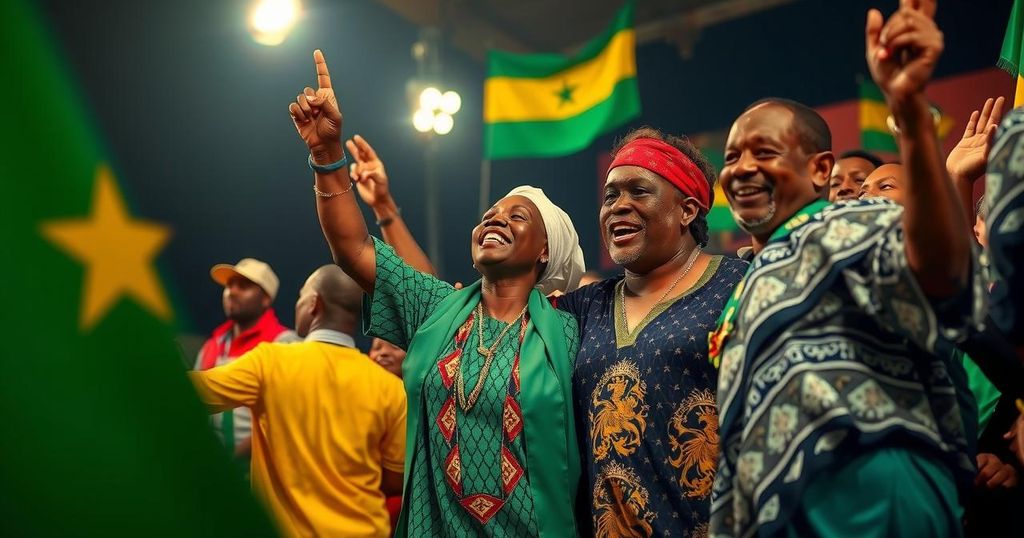Senegal’s Ruling Pastef Party Claims Significant Victory in Legislative Elections
Senegal’s ruling Pastef party claimed a decisive victory in recent legislative elections, securing the mandate needed to pursue its reform agenda. Voting was peaceful, with 90-95% of ballots counted. President Bassirou Diomaye Faye’s party surpassed opposition groups, eight months after taking power. The government faces economic challenges, including high unemployment and inflation, and continues to navigate a fragmented opposition and accusations of electoral fraud.
In the recent legislative elections held in Senegal, the ruling Pastef party has claimed a significant victory, reinforcing its mandate to pursue an ambitious reform agenda. The voting process was reportedly smooth, with an impressive 90-95% of votes tallied shortly after polls closed. Government spokesman Amadou Moustapha Ndieck Sarre highlighted the party’s success, acknowledging the support from the Senegalese people. This election marks a strategic milestone for President Bassirou Diomaye Faye, eight months into his leadership, as the party emerged ahead of its two main opposition rivals. Faye’s administration aims to tackle pressing economic issues, including high inflation and unemployment, particularly affecting the youth of the nation. Faye, who rose to power in March with promises of economic transformation and social justice, faced significant challenges from an opposition-dominated legislature in his initial months. Consequently, he dissolved parliament in September, calling for snap elections. The public appears hopeful for a government that can fulfill its reform commitments, with voters expressing a desire for the ruling party to secure a majority. Young constituency members emphasized the importance of their votes in influencing societal change. Despite the typically lower turnout compared to presidential elections, Senegal’s stable political environment was respected throughout the voting process. Observers noted that both Faye and his former mentor Ousmane Sonko, now prime minister, advocated for a peaceful democratic exercise. Sonko, reflecting on past tensions, stressed the importance of maintaining tranquility during this critical period. Meanwhile, the opposition, under former president Macky Sall, alleged electoral fraud without substantiating their claims, signaling ongoing political discord in the country. Senegal continues to navigate significant economic challenges, with unemployment exceeding 20%. The government has taken steps to address the rising cost of living and implement necessary reforms in public finances and governance structures. Amid ongoing scrutiny from credit rating agencies, the administration remains determined to execute long-term development strategies regardless of political opposition.
Senegal has long been regarded as a bastion of stability amidst the tumultuous political landscape in West Africa. The country’s recent elections reflect the ongoing challenges and transformations within its governance structures. The Pastef party, characterized by its reformist stance and youth-centric policies, emerged as a formidable force in the political arena after President Faye’s ascension to power. However, the party faces considerable scrutiny and resistance from the fragmented opposition, which continues to question its mandate and competency. The nation’s economic landscape presents additional hurdles, with high unemployment rates and inflation affecting the populace.
The recent legislative elections in Senegal have underscored the ruling Pastef party’s claim to a significant mandate, facilitating its reform agenda intended to alleviate economic struggles, especially among the youth. While the electoral process proceeded without major disruptions, the opposition’s accusations of fraud reveal underlying tensions that may challenge the government’s stability. As President Faye endeavors to implement long-term development initiatives amidst economic difficulties, the political landscape remains a critical area of focus for both domestic and international observers.
Original Source: www.france24.com




Post Comment